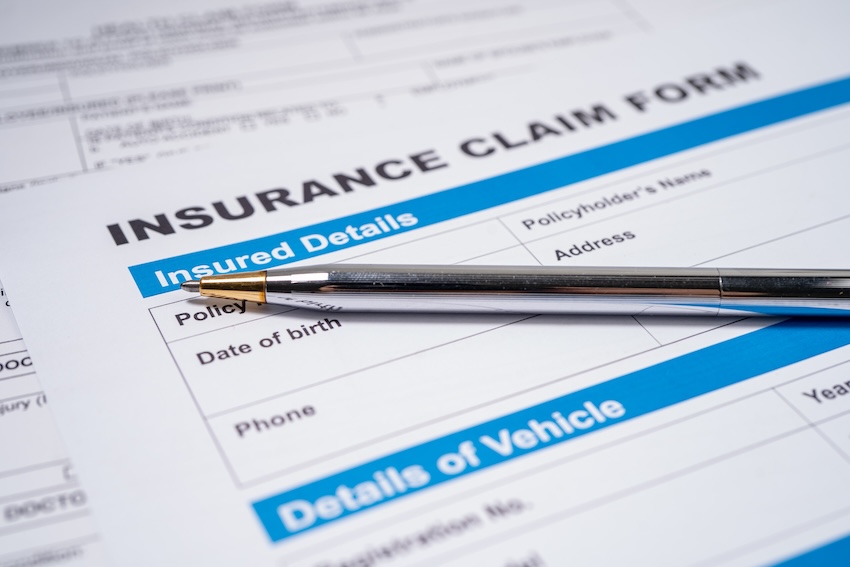Understanding the Car Accident Claim Process: A Complete Guide for North Carolina Drivers
Published by Mogy Law Firm | Reading Time: 5 minutes
Being in a car accident is overwhelming. Between dealing with injuries, damaged vehicles, and mounting medical bills, the last thing you want to think about is navigating the complex insurance claim process. But understanding how car accident claims work can make a significant difference in the compensation you receive.
At Mogy Law Firm, our experienced auto accident lawyers have guided hundreds of North Carolina accident victims through this process. Here’s everything you need to know about filing and winning your car accident claim.
Immediate Steps After a Car Accident
What to Do at the Scene
Your actions immediately after a collision directly impact your claim’s success. First, check for injuries and call 911—even if the accident seems minor. North Carolina law requires you to report accidents involving injuries, death, or property damage exceeding $1,000.
While waiting for police, document everything. Take photos of vehicle damage, skid marks, traffic signals, road conditions, and visible injuries. Get contact information from witnesses. Exchange insurance details with the other driver, but avoid discussing fault or apologizing—insurance companies can use these statements against you later.
Request a copy of the police report number. This official documentation becomes crucial evidence for your claim. The responding officer’s assessment of the accident scene, statements from involved parties, and any citations issued all strengthen your position during negotiations.
You can obtain a copy of your crash report through the
North Carolina DMV for a small fee. This report documents the accident scene,
officer assessments, and becomes critical evidence for your claim.
Seek Medical Treatment Immediately
Even if you feel fine, see a doctor within 24-48 hours. Adrenaline masks pain, and injuries like whiplash, concussions, and internal damage may not show symptoms immediately. Delaying medical care gives insurance companies ammunition to argue your injuries weren’t serious or weren’t caused by the accident.
Keep detailed records of every medical visit, prescription, treatment, and expense. These documents prove the extent of your injuries and justify your compensation demands.
Filing Your Car Accident Insurance Claim
Reporting to Insurance Companies
North Carolina requires you to notify your insurance company about accidents, typically within a reasonable timeframe specified in your policy. However, be strategic about what you say. Provide only basic facts: date, time, location, and that an accident occurred. Don’t give recorded statements or speculate about injuries before consulting an attorney.
If the other driver was at fault, you’ll file a third-party claim with their insurance company. North Carolina follows an at-fault system, meaning the driver who caused the accident is responsible for damages. However, the state also uses contributory negligence—if you’re found even 1% at fault, you could lose your entire claim. This harsh rule makes legal representation especially critical.
The Insurance Investigation Process
After filing your claim, the insurance company assigns an adjuster to investigate. They’ll review the police report, examine vehicle damage, interview witnesses, and assess medical records. Adjusters work for the insurance company—not you—and their goal is minimizing payouts.
Expect calls requesting recorded statements, medical authorizations, and settlement discussions. Insurance adjusters often contact accident victims early, hoping to secure quick settlements before the full extent of injuries becomes clear. These initial offers are typically far below what your claim is actually worth.
Calculating Your Car Accident Claim Value
Economic Damages You Can Recover
Economic damages include measurable financial losses. Medical expenses—past and future—form the foundation of most claims. This includes emergency room visits, hospitalization, surgery, medication, physical therapy, medical equipment, and ongoing treatment costs.
Lost wages compensate for income lost during recovery. If your injuries prevent you from returning to your previous job or reduce your earning capacity, you can also claim future lost earnings. Property damage covers vehicle repairs or replacement value, as well as damaged personal belongings.
Non-Economic Damages
Non-economic damages compensate for intangible losses that don’t have receipts. Pain and suffering accounts for physical discomfort during recovery and any chronic pain. Emotional distress covers anxiety, depression, PTSD, and psychological trauma from the accident.
Loss of enjoyment of life compensates you when injuries prevent participation in activities you previously enjoyed—sports, hobbies, travel, or time with family. In severe cases involving permanent disability or disfigurement, these non-economic damages can exceed economic losses.
North Carolina doesn’t cap non-economic damages in most car accident cases, allowing you to pursue full compensation for your suffering.
The Negotiation Phase
Demand Letters and Settlement Offers
Once you’ve completed medical treatment or reached maximum medical improvement, your attorney sends a demand letter to the insurance company. This detailed document outlines liability evidence, injury documentation, and a specific compensation amount with supporting justification.
The insurance company typically responds with a counteroffer—usually significantly lower than your demand. This starts the negotiation process. Experienced attorneys know industry tactics and how to counter lowball offers effectively. They leverage evidence, expert testimony, and the threat of litigation to push for fair settlements.
Most car accident claims settle during negotiation. However, insurance companies only offer reasonable settlements when they know you have strong legal representation willing to go to trial.
When Settlement Negotiations Fail
If negotiations stall or the insurance company refuses a fair offer, filing a lawsuit becomes necessary. In North Carolina, you generally have three years from the accident date to file a personal injury lawsuit—missing this deadline means losing your right to compensation forever.
Litigation involves discovery (exchanging evidence), depositions (recorded testimony), and potentially a trial where a jury decides your case. While trials take longer and involve more preparation, they sometimes yield significantly higher compensation than settlement offers.
Common Car Accident Claim Mistakes to Avoid
Don’t Accept Quick Settlement Offers
Insurance adjusters often contact victims within days of an accident, offering quick settlements. These early offers rarely reflect the full value of your claim. You might not know the extent of your injuries, future medical needs, or whether you’ll develop complications. Once you accept a settlement and sign a release, you cannot seek additional compensation—even if your medical situation worsens.
Don’t Sign Medical Authorizations
Insurance companies request blanket medical authorizations, giving them access to your entire medical history. They’re looking for pre-existing conditions to argue your injuries weren’t caused by the accident. Never sign broad medical releases without attorney review. Your lawyer can provide relevant medical records while protecting your privacy.
Don’t Post on Social Media
Insurance companies monitor social media for evidence to devalue claims. Photos of you smiling, exercising, or traveling can be taken out of context to argue you’re not really injured. Even innocent posts about daily activities can be twisted. The safest approach is avoiding social media entirely while your claim is pending.
Why You Need a Car Accident Lawyer
Insurance Companies Have Lawyers—You Should Too
Insurance companies have teams of lawyers protecting their interests. They know you’re unfamiliar with claims processes and legal tactics. They use this advantage to minimize payouts. Hiring an experienced car accident attorney levels the playing field.
At Mogy Law Firm, we handle all communication with insurance companies, gather evidence, calculate full damages, negotiate aggressively, and prepare for trial if necessary. We know North Carolina’s contributory negligence rule and how to defend against unfair fault allegations.
You Keep More Money With Our 25% Fee
Unlike most personal injury attorneys who charge 33-40%, we charge just 25%. If we recover $100,000, you keep $75,000—not $60,000-$67,000. Our lower rate means more money in your pocket when you need it most. And remember: you pay nothing unless we win your case.
Take Action on Your Car Accident Claim Today
The car accident claim process is complex, but you don’t have to navigate it alone. Insurance companies count on victims being overwhelmed, uninformed, and willing to accept less than they deserve. Don’t let that be you.
At Mogy Law Firm, we’ve helped countless North Carolina accident victims secure the compensation they need to rebuild their lives. We offer free case evaluations with no obligation. During your consultation, we’ll review your accident details, explain your legal options, and give you honest answers about your claim’s value.
Call (901) 443-9133 now to speak with an experienced car accident attorney. Time matters—evidence disappears, witnesses forget, and North Carolina’s statute of limitations sets strict deadlines. The sooner you call, the stronger your case becomes.
Don’t settle for less. You deserve justice, and we’re here to fight for it.
About Mogy Law Firm: We’re a North Carolina personal injury law firm dedicated to helping accident victims throughout Raleigh, Concord, and surrounding areas. With decades of combined experience and a commitment to charging just 25% instead of the typical 33-40%, we ensure you keep more of your settlement where it belongs—with you.








